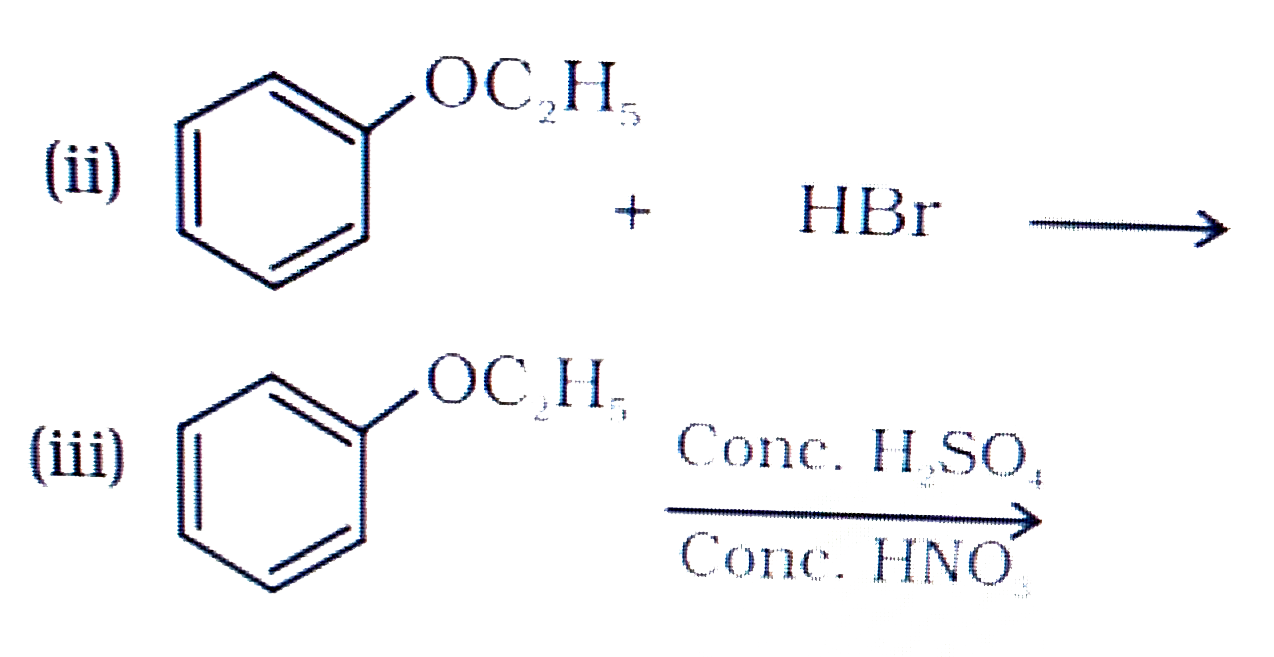What is the final product of the reaction?
(CH3)2C=CHCH2CH3(i)BH3/THF−−−−−−−−−−−−→(ii)H2O2,OH−PCC−−→(i)CH3MgBr−−−−−−−−−−→(ii)H2O+
2,3-dimenthyl pentan - 3 - ol
2,4 - dimethyl pentane - 3-ol
2,3 - dimethyl pentan - 2- ol
2,2-dimethyl pentan-3-ol
The correct Answer is:A
To solve the given reaction step by step, we will analyze each reagent and its effect on the substrate.
Step 1: Identify the substrate
The substrate provided is (CH₃)₂C=CHCH₂CH₃, which is 3-methyl-1-pentene.
Step 2: First reaction with BH₃/THF
The first step involves the reaction of the alkene with borane (BH₃) in tetrahydrofuran (THF). This is a hydroboration reaction, which adds BH₂ and H across the double bond in an anti-Markovnikov manner.
- In our case, the double bond is between the second and third carbon atoms. The hydrogen (H) will add to the less substituted carbon (the one with fewer hydrogen atoms), and the boron (BH₂) will add to the more substituted carbon.
Resulting product after hydroboration:
The product will be:
- The carbon that had the double bond (C2) will now have an H atom, making it CH.
- The carbon that was attached to boron (C3) will have the BH₂ group, making it CH(BH₂).
So, the product after this step is:
(CH₃)₂C(CH)(CH₂)(CH₃)
Step 3: Oxidation with H₂O₂ and OH⁻
Next, we treat the product with hydrogen peroxide (H₂O₂) in a basic medium (OH⁻). This step is known as oxidation of the boron intermediate to an alcohol.
- The BH₂ group is replaced with an OH group, leading to the formation of a secondary alcohol.
Resulting product after oxidation:
The product will be:
(CH₃)₂C(OH)(CH₂)(CH₃)
Step 4: Reaction with PCC
Now we treat the secondary alcohol with pyridinium chlorochromate (PCC), which is a mild oxidizing agent. This will oxidize the secondary alcohol to a ketone.
Resulting product after oxidation:
The product will be:
(CH₃)₂C=O(CH₂)(CH₃)
Step 5: Reaction with CH₃MgBr
Next, we react the ketone with methyl magnesium bromide (CH₃MgBr), which is a Grignard reagent. This will add a methyl group to the carbonyl carbon, forming a tertiary alcohol.
Resulting product after Grignard reaction:
The product will be:
(CH₃)₂C(OH)(CH₂)(CH₃)
Step 6: Hydrolysis
Finally, we perform hydrolysis to convert the Grignard addition product into the final alcohol.
Final product:
The final product is:
2,3−dimethylpentan−3−ol
Conclusion
The final product of the reaction is 2,3-dimethylpentan-3-ol.
---
The substrate provided is (CH₃)₂C=CHCH₂CH₃, which is 3-methyl-1-pentene.
The first step involves the reaction of the alkene with borane (BH₃) in tetrahydrofuran (THF). This is a hydroboration reaction, which adds BH₂ and H across the double bond in an anti-Markovnikov manner.
The product will be:
- The carbon that had the double bond (C2) will now have an H atom, making it CH.
- The carbon that was attached to boron (C3) will have the BH₂ group, making it CH(BH₂).
(CH₃)₂C(CH)(CH₂)(CH₃)
Next, we treat the product with hydrogen peroxide (H₂O₂) in a basic medium (OH⁻). This step is known as oxidation of the boron intermediate to an alcohol.
The product will be:
(CH₃)₂C(OH)(CH₂)(CH₃)
Now we treat the secondary alcohol with pyridinium chlorochromate (PCC), which is a mild oxidizing agent. This will oxidize the secondary alcohol to a ketone.
The product will be:
(CH₃)₂C=O(CH₂)(CH₃)
Next, we react the ketone with methyl magnesium bromide (CH₃MgBr), which is a Grignard reagent. This will add a methyl group to the carbonyl carbon, forming a tertiary alcohol.
The product will be:
(CH₃)₂C(OH)(CH₂)(CH₃)
Finally, we perform hydrolysis to convert the Grignard addition product into the final alcohol.
The final product is:
2,3−dimethylpentan−3−ol
The final product of the reaction is 2,3-dimethylpentan-3-ol.
Similar Questions
What is the final product of the reaction ?
(CH−)(3)HC=C(CH3)CH2CH3(i)BH3/THF−−−−−−−−−→(ii)H2O2/¯¯¯OHPCC−−−−→CH2Cl2(i)CH3MgBr−−−−−−−−→(ii)H3O+
View SolutionThe major product formed in the reaction
CH3CH=CH−O∣∣C−CH3NaBH4−−−−−−−−→H2O,CH3OH is
View SolutionPredict the major product in the following reaction :
C6H5−CH2CO2CH3(i)CH3MgBr(Excess)−−−−−−−−−−−−−−→(ii)H⊕.
View SolutionComplete the following reaction sequence :
CH3−O∣∣C−CH3(i)CH3MgBr−−−−−−−−→(ii)H2O(A)Na metal−−−−→ether(B)CH3−Br−−−−−→(C)
View SolutionComplete the following reaction sequence :
CH3−O∣∣C−CH3(i)CH3MgBr−−−−−−−−→(ii)H2O(A)Na metal−−−−→ether(B)CH3−Br−−−−−→(C)
View SolutionWhat is the major product of the following reaction ?
CH3−C≡NCH3MgI−−−−→Et2OH3O⊕−−−→
View SolutionWrite the product of following reactions :
(i) CH3−C≡C−CH=CH2O3/H2O2−−−−−→ , (ii) , O3/H2O2−−−−−→
, O3/H2O2−−−−−→
View SolutionGive the formulae of [A] and [B]
CH3CH2MgBr+CO2(i)Dry ether−−−−−−−−→(ii)H+/H2O[A]PCl5−−→[B]
View SolutionComplete the following :
C2H5OHCu/573K−−−−−→XCH3MgBr−−−−−−−−→H2O/H+Y
View SolutionPredict the products of the following reactions:
(i) CH3−CH2−CH2−O−CH3+HBr→

(iv) (CH3)3C−OC2H5HI−−→
View Solution